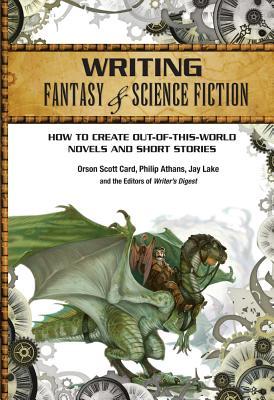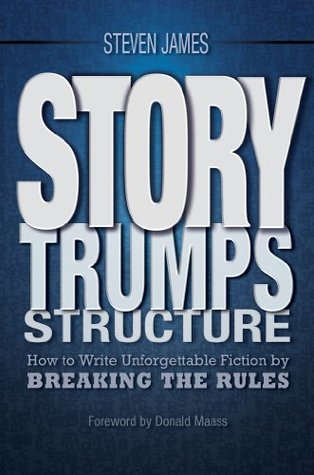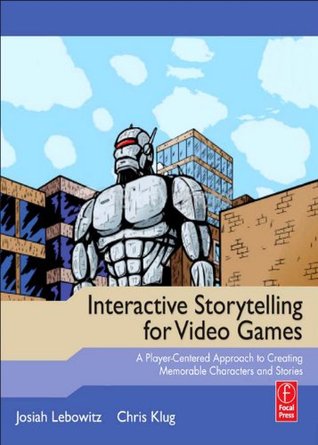Title: Words for Pictures: The Art and Business of Writing Comics and Graphic Novels
Author: Brian Michael Bendis
Publisher: Watson-Guptill
What It's About: Words for Pictures is a guide for anyone interested in writing scripts for comic books or graphic novels.
Why I Read It: I've always loved comic books and graphics novels. I've never written in that medium before, but I've always been interested in the process. Bendis's book is the perfect guide to learning how to write in the comic book/graphic novel medium.
What I Liked About It: As a fan of comic books, I've come across Brian Michael Bendis's name many times, so I knew this was a book by someone who was on the front lines of the industry. In fact, Bendis is one of the leading writers for Marvel Comics, and he's written for The Avengers and Ultimate Spider-Man, among many others. I loved his story about how he got into comics. He even includes some examples of his early work in learning the craft.
Bendis covers the way comic book scripts are created, from pitch documents to the actual script that an artist follows to create the visuals of the story. Bendis makes it clear that when you're writing a script, you're writing something that your audience will never see. Comics and graphic novels are a joint effort by the writer and the artist, so when you're writing your script, you're writing in a way that the artist will understand what you're trying to get across so that they can translate it into visuals on the page.
The book also includes several contributions and interactions with other leading writers and artists to give us an even wider look into the creative process for comics/graphic novels.
The book doesn't just cover the craft side of comic books, however. Bendis also guides writers through the business side of comic book writing. This includes how to break into the business of comic book writing, which is a difficult pursuit. It's also about how to run a writing business once you've broken in and established yourself as a comic book writer. This was an interesting part of the book because Bendis interviews his wife who handles much of the business side of Bendis's career. It was great to see her insight into what a writer must do to always stay in the profession.
To top it all off, the book includes a chapter on the questions Bendis is asked the most, complete with his insightful and honest answers. This is a great book, the best I've seen, if you're interested in writing for comics or graphic novels.
Review copy provided by the Blogging for Books program in exchange for an honest review
Where You Can Buy It: Amazon.com
Wednesday, July 30, 2014
Review of IF I HAD LUNCH WITH C.S. LEWIS by Alister McGrath
Title: If I Had Lunch with C.S. Lewis
Author: Alister McGrath
Publisher: Tyndale House
What It's About: If I Had Lunch with C.S. Lewis is a unique interaction with the writings and thought of C.S. Lewis as if he were our lunch guest.
Why I Read It: C.S. Lewis is probably my favorite author of all time, and I thoroughly loved McGrath's biography of Lewis. I found the idea of having a conversation with Lewis over lunch intriguing.
What I Liked About It: The layout of the book is great as each chapter takes one theme each from the writings of Lewis. For example, McGrath spends a chapter looking at Lewis's thoughts on the importance of story, and in another chapter we get a closer look at the character of Aslan from the Chronicles of Narnia stories. There are other chapters on education, friendship, the meaning of life, apologetics, the problem of pain, and heaven. McGrath spends the beginning of each chapter outlining Lewis's thoughts on the subject, with some context, and then engages in a hypothetical dialogue with Lewis on the subject. Because McGrath researched extensively into Lewis's life for his biography, he is the perfect person poised to give us a book like this. If you're a fan of Lewis's writing, If I Had Lunch with C.S. Lewis is a fun book to read that will give you a good overview of what was most important in Lewis's mind.
Review copy provided by Tyndale House as a part of the Tyndale House Blog Network
Friday, July 11, 2014
Review of WRITING FANTASY & SCIENCE FICTION from Writer's Digest Books
Title: Writing Fantasy & Science Fiction
Author: Orson Scott Card, Philip Athans, Jay Lake, and the Editors of Writer's Digest
Publisher: Writer's Digest Books
What It's About: Writing Fantasy & Science Fiction is a comprehensive guidebook to creating fantastic storyworlds and characters for stories that have more of a fantasy or sci-fi focus.
Why I Read It: Many of the stories I love the most fall into the realm of either science fiction or fantasy, or at least have fantasy and sci-fi elements as a part of the story.
What I Liked About It: This book is really about creating a world for your story, and the variety of authors who contribute to this book cover a wide-range of elements you need to consider as you're crafting your story. Things like the society of your story, dress, weapons, religions, creatures. Everything that you can think of that has a place in either fantasy or sci-fi stories is covered in this book. One of the interesting parts of the book is the section on steampunk stories, and it might get you interested in trying your hand at one. Orson Scott Card, who wrote Ender's Game, is one of the primary contributors and the reason why I wanted to read the book. The other authors have just as much insight to offer, however, and it's a valuable addition for any fiction writer's bookshelf.
Review copy provided by Writer's Digest Books
Where You Can Buy It: Amazon.com
Review of STORY PHYSICS by Larry Brooks
Title: Story Physics
Author: Larry Brooks
Publisher: Writer's Digest Books
What It's About: Story Physics outlines the fundamental forces that drive any story so that any fiction writer can learn to utilize them to craft a compelling story.
Why I Read It: I loved Brooks's other book Story Engineering and found it to be one of the best books on story structure I've ever read. When I found out he was expanding upon what he'd written in that book in Story Physics, I knew I wanted to check it out.
What I Liked About It: I loved Brooks's discussion of the difference between an idea, a concept, and a premise because it makes so much sense. It helps you to refine your idea to make it uniquely your own. I love engineering metaphors, and this book makes great use of the ideas of forces that drive a good story forward. Brooks argues that every good story follows certain story physics, and the stories that don't are the ones that people aren't reading. I loved his discussion of mission-driven scenes and the role of subtext in the stories we tell.
For those who haven't read Story Engineering, this book in some ways rehashes some of the key elements of that book, as well as provides some summary of what Brooks calls the Core Competencies of storytelling at the end. Since I loved the first book, I didn't mind revisiting what he'd already shared in the first book. Plus, it's stuff I try to use as I'm writing anyway. One of the most helpful parts of the book comes toward the end when Brooks applies what he's been talking about with story physics to The Hunger Games, which is one of my favorite novels. He also applies it to The Help.
Story Physics is a great book if you're writing fiction because it will help you to understand what makes great stories great and give you some strategies for creating your own.
Review copy provided by Writer's Digest Books
Where You Can Buy It: Amazon.com
Review of STORY TRUMPS STRUCTURE by Steven James
Title: Story Trumps Structure
Author: Steven James
Publisher: Writer's Digest Books
What It's About: Story Trumps Structure is a book about writing that focuses less on structural story formulas and more on letting a story form on its own as you're writing.
Why I Read It: I've been reading Steven James's books for years, long before he became a fiction writer. I've enjoyed reading his novels and think he's one of the best storytellers out there.
What I Liked About It: I've read almost all of the books on story structure formulas, and some of them I really enjoy. There are really two types of writers: those who outline and those who don't. I tend to feel more free as a storyteller when I have an outline to work from, but sometimes I like to write without one. James's book is a book primarily for those who just want to write. James doesn't argue that stories don't have structure. They do, and, ironically, you'll find a lot about structure in this book. But the focus of Story Trumps Structure is to get you feeling free to let a story flow. I know I enjoy getting a story out and then fine tuning it afterward. James's book helps you to do that.
Like many books on fiction writing, James tells you the things that a good story needs, then unleashes you to write a story organically. He gives you some strategies to keep moving if you get stuck in the form of some questions to ask of your story, which I love and find most helpful.
There is a certain thrill from writing a story and not knowing beforehand where the story will go or how it will end. I tend to find myself outlining my stories because it's easy to get to a certain point in the story where you feel stuck. Those tend to end up unfinished stories. That's why I tend to rely on outlines. Story Trumps Structure is for writers who want to get away from feeling they have to have an outline. It's about keeping your story moving, keeping yourself engaged, and ultimately producing a story that will keep an author engaged.
When one of my favorite authors puts out a book about their process of writing, it's an exciting thing. Story Trumps Structure by Steven James doesn't disappoint.
Review copy provided by Writer's Digest Books
Where You Can Buy It: Amazon.com
Review of YOUNG, RESTLESS, NO LONGER REFORMED by Austin Fischer
Title: Young, Restless, No Longer Reformed
Author: Austin Fischer
Publisher: Cascade Books
What It's About: Young, Restless, No Longer Reformed is an honest look at one person's journey in and out of Calvinism and what led him to believe that Calvinism gets much about God's character wrong.
Why I Read It: I've studied Calvinism thoroughly, and though I think they have some good logical arguments, I've never been able to buy into it because I believe the Bible reveals things as a little more complex than Calvinist doctrine teaches. When I heard about this book, with a title that plays on the title of another book called Young, Restless, and Reformed, I decided to check it out.
What I Liked About It: I love Fischer's honesty. It's not so much a book that tries to make careful and complex arguments against Calvinism as it is a book that honestly follows Fisher's journey from believing Calvinism to be true to finding it to be inconsistent with what the Bible actually teaches. Along the way, he shares what led him to believe Calvinists have it all wrong.
Fischer sees Calvinism as making the Bible impossible, which I agree with. Calvinists seem to take a stance that treats God as someone who needs to be defended because his glory is always in danger of being taken away. Of course, that's not how they see it, but all the talk about glory makes many Calvinists sound extremely paranoid that non-Calvinists will up and steal God's glory with their proclamations of libertarian free will and claiming of responsibility for their salvation.
Toward the end of the book, Fischer argues how silly it sounds for someone to accept a gift and then claim that they should be merited for receiving the gift. God's glory is in no danger, and I think non-Calvinists actually believe that more than Calvinists do. One argument that Calvinists often make concerning the elect is illustrated by comparing a husband's love for his wife as unique above his love for any other woman. I've always been frustrated by this argument. Fischer easily reverses this argument that even though a husband has a unique love for his wife, he doesn't treat all other women terribly. It would be ridiculous to claim God loves some people uniquely, so his love for the others leads him to send the others to hell for all eternity. Therefore, the comparison to a husband's love for his wife to illustrate limited atonement just doesn't work.
I'm with Fischer in believing that there are many great Calvinists that we can learn much from, but Calvinism itself paints God all wrong. For anyone struggling with Calvinism, this is a book I would recommend above many others.
Review copy provided by Cascade Books
Where You Can Buy It: Amazon.com
Wednesday, July 2, 2014
Review of INTERACTIVE STORYTELLING by Josiah Lebowitz & Chris Klug
Title: Interactive Storytelling for Video Games
Author: Josiah Lebowitz & Chris Klug
Publisher: Focal Press
What It's About: Interactive Storytelling for Games looks at the way stories are developed for video games.
Why I Read It: I love writing stories, and I love finding innovative ways to tell stories. I've always loved the stories featured in my favorite video games, so this book seemed like a great read.
What I Liked About It: This book was a lot of fun to read. I loved learning about how video games have evolved over the last several decades and how stories have become a part of the video game playing experience. I love stories like the ones featured in the Final Fantasy series of games, and I loved the way the others used examples from these games and many others to illustrate the ways writer can develop stories for games. This book does a great job of helping writers to focus on the game player's experience and getting them engaged in the game and the story contained in the game. It's a thorough guide, and I'd definitely recommend it to anyone interested in writing for video games.
Review copy provided by Focal Press
Where You Can Buy It: Amazon.com
Subscribe to:
Comments (Atom)






